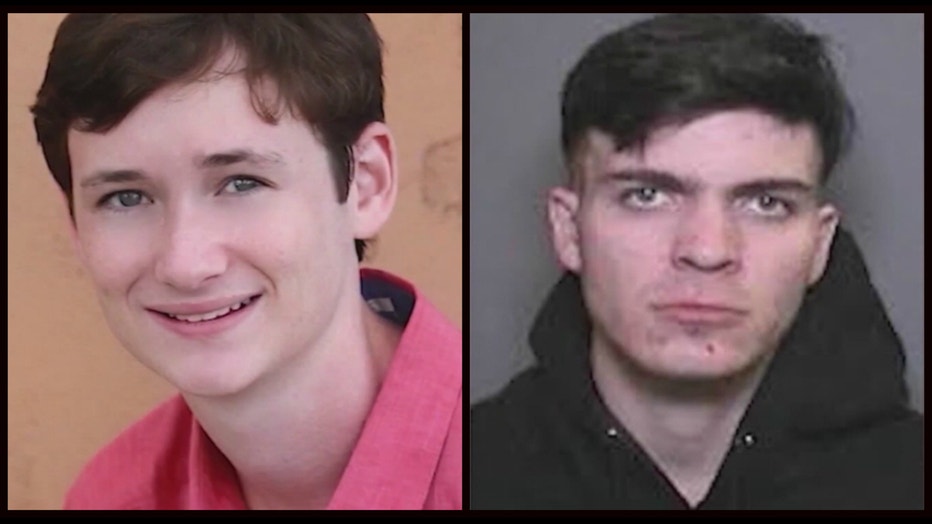Samuel Woodward's attorney says he did kill Blaze Bernstein, but not for the reasons prosecutors allege
SANTA ANA, Calif. - The trial of Samuel Woodward, a Newport Beach man accused of the 2018 murder of a University of Pennsylvania sophomore, Blaze Bernstein, is expected to conclude on Wednesday with closing statements being read at Santa Ana’s Central Justice Center.
Samuel Woodward, 26, faces the potential of life imprisonment without parole, as he is up against a murder charge with hate crime enhancements attached, stemming from allegations from prosecutors tied to his hatred towards Bernstein's Jewish identity and sexual orientation. Senior Deputy District Attorney Jennifer Walker insists that the killing was because "he was gay."
Bernstein, 19, was found in a shallow grave with multiple stab wounds at Borrego Park near his family's Foothill Ranch home. He was reported missing on Jan. 3, 2018, which led to a widespread search, only to have the discovery made during a later search aided by rain, according to Walker.
Prosecutors painted a picture of Woodward as an individual connected to extremist neo-Nazi organizations and claimed he had a pattern of luring and then rejecting or threatening gay men online. Prosecutors allege that before their encounter, Woodward had been catfishing gay individuals, showing jurors evidence of expressions of disgust toward homosexuality in his journal.
PREVIOUS COVERAGE: Blaze Bernstein's suspected killer begins trial 6 years after charges filed
In contrast to this portrayal, Ken Morrison of the Orange County Public Defender's Office admitted his client’s involvement in Bernstein’s death but disputed the claim of it being a hate crime rooted in neo-Nazi ideology. Morrison underscored Woodward's struggles with undiagnosed autism, obsessive-compulsive disorder, and conflicts with his own sexuality.
Highlighting Woodward's view of Bernstein as intelligent and charming, the defense argued that the murder was not because of who Bernstein was but rather a culmination of interactions leading up to that night.
Morrison detailed Woodward’s complex behavior, from his membership in an extremist group to a somewhat concealed association with an openly gay classmate. As evidence unfolded with the accounts of Bernstein planning to meet another friend on the night he vanished, and Woodward’s internet searches during the same period, the courtroom saw glimpses into the accused’s conflicting inner world. Woodward, an Eagle Scout and a dropout from Cal State Channel Islands, was brought out by Morrison as a figure struggling on multiple fronts.

L: Blaze Bernstein, R: Samuel Woodward
The parents of Blaze Bernstein, Gideon and Jeanne Bernstein, who unknowingly left for the day without realizing their son wasn't home, returned to confront a scenario that escalated into every parent's nightmare. Lack of response to calls and texts alerted them, as they discovered his belongings at home, untouched.
The prosecution summarized the story as a hate crime by presenting diary entries, Bernstein’s DNA on a knife with Woodward’s father’s name, his DNA on a sleeping bag, and an Atomwaffen uniform turtleneck. Yet, the defense counsel reflected a narrative of a young man befriended and manipulated amidst his own vulnerability, all the while rejecting the premise that these actions culminated in a hate crime.
As the trial approaches its conclusion, jurors will have to discern the motives behind this tragic event that unfolded in the early days of 2018 and determine Samuel Woodward’s fate in light of all presented evidence.
CNS contributed to this report.

